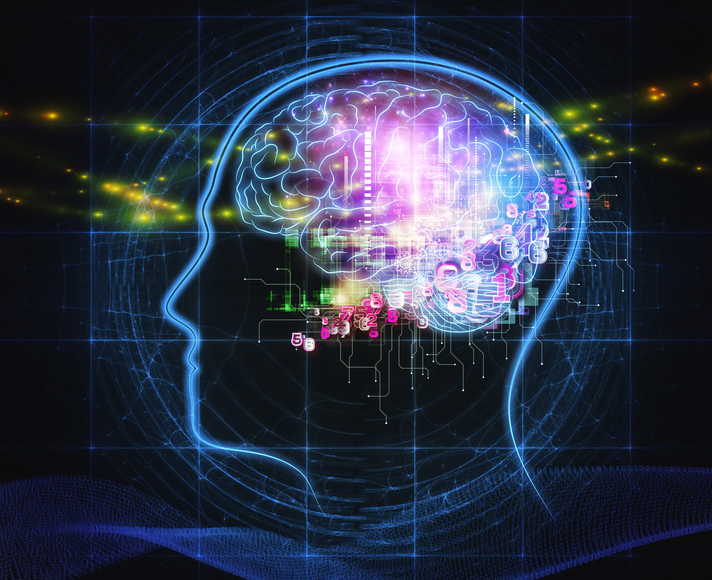The future of artificial intelligence
Artificial intelligence has made great advances since the advent of inventions such as robots that can think through difficult problems and cars that can function autonomously, and the future holds even more promise in this developing field.
Collectively as AI, these devices revolve around the idea of computers or other technological systems that are capable of complex thought with little to no human input.
“I think artificial intelligence will be awesome because there’s a lot of medicines that can be developed and a lot of video games that use a lot of awesome AIs, and it makes it more fun when you play with a good AI,” Shaya Zarkesh (10) said.
Chemistry teacher Robbie Korin also believes that advancements in AI have great potential.
“Hopefully we keep [AI] under control so we don’t have that movie thing coming on, but I think it’s probably unlimited as we extend out into the future,” Korin said. “Computers already help in that they do a lot of things fast [for science research]. That’s probably what it’s going to continue [toward]. Connections will just be made faster.”
Scientists also have been incorporating the ideas of AI technology to fulfill medical and health needs with robots that assist surgeons and help diagnose patients.
“In Big Hero 6 [there were AIs] like Baymax, where they can solve healthcare problems,” freshman Constance Horng said. “It’s faster and more efficient.”
Other areas of AI include robots that can be used to solve difficult problems with humanlike thought. IBM created a robot named Deep Blue that could predict chess moves with the highest probability of success and quickly make associations between different game piece placements. When Deep Blue played chess grandmaster Garry Kasparov in 1997, it won two games, Kasparov won one, and there were three draws.
Kasparov believed that he had lost because he could not compete with the large database that the computer had access to.
Watson, also created by IBM as an extension to Deep Blue, competed on the game show Jeopardy! and won in 2011.
Technology that can respond efficiently to road hazards without input from human drivers has also experienced recent developments.
Google has been working on a fleet of self-driving cars since 2009 and has released some on California and Texas roads, while Japanese carmaker Toyota announced plans last Friday to partner with Stanford and MIT research labs to create safer cars that can replace human drivers when needed.
Carnegie Mellon University teamed up with rideshare program Uber in February to create self-driving cars, and many other companies in the field, including Ford, Mercedes Benz and Audi, also have plans to develop autonomous vehicles.
“The one thing I hope that [AI] will do is to make things safer, and the situation that automatically comes to mind is the idea of cars and how if you had thinking cars, you would reduce the number of accidents,” physics teacher Lisa Radice said.
However, despite the positive effects and findings that AI brings to society, some remain skeptical about the outcome of the future with these devices.
“I feel like the standard of living will increase by a lot, but there are also going to be problems,” David Zhu (11) said. “People are going to lose their jobs when [the occupations] become automated.”

Jackie Gao (10) is in her second year on staff is a reporter of the Winged Post. Her favorite part of journalism is the ability to interact with various...
Rose Guan (10) is a copy editor for the Winged Post in her second year on staff. She was a reporter in her freshman year, and her favorite aspect of journalism...




![LALC Vice President of External Affairs Raeanne Li (11) explains the International Phonetic Alphabet to attendees. "We decided to have more fun topics this year instead of just talking about the same things every year so our older members can also [enjoy],” Raeanne said.](https://harkeraquila.com/wp-content/uploads/2025/10/DSC_4627-1200x795.jpg)


















![“[Building nerf blasters] became this outlet of creativity for me that hasn't been matched by anything else. The process [of] making a build complete to your desire is such a painstakingly difficult process, but I've had to learn from [the skills needed from] soldering to proper painting. There's so many different options for everything, if you think about it, it exists. The best part is [that] if it doesn't exist, you can build it yourself," Ishaan Parate said.](https://harkeraquila.com/wp-content/uploads/2022/08/DSC_8149-900x604.jpg)




![“When I came into high school, I was ready to be a follower. But DECA was a game changer for me. It helped me overcome my fear of public speaking, and it's played such a major role in who I've become today. To be able to successfully lead a chapter of 150 students, an officer team and be one of the upperclassmen I once really admired is something I'm [really] proud of,” Anvitha Tummala ('21) said.](https://harkeraquila.com/wp-content/uploads/2021/07/Screen-Shot-2021-07-25-at-9.50.05-AM-900x594.png)







![“I think getting up in the morning and having a sense of purpose [is exciting]. I think without a certain amount of drive, life is kind of obsolete and mundane, and I think having that every single day is what makes each day unique and kind of makes life exciting,” Neymika Jain (12) said.](https://harkeraquila.com/wp-content/uploads/2017/06/Screen-Shot-2017-06-03-at-4.54.16-PM.png)








![“My slogan is ‘slow feet, don’t eat, and I’m hungry.’ You need to run fast to get where you are–you aren't going to get those championships if you aren't fast,” Angel Cervantes (12) said. “I want to do well in school on my tests and in track and win championships for my team. I live by that, [and] I can do that anywhere: in the classroom or on the field.”](https://harkeraquila.com/wp-content/uploads/2018/06/DSC5146-900x601.jpg)
![“[Volleyball has] taught me how to fall correctly, and another thing it taught is that you don’t have to be the best at something to be good at it. If you just hit the ball in a smart way, then it still scores points and you’re good at it. You could be a background player and still make a much bigger impact on the team than you would think,” Anya Gert (’20) said.](https://harkeraquila.com/wp-content/uploads/2020/06/AnnaGert_JinTuan_HoHPhotoEdited-600x900.jpeg)

![“I'm not nearly there yet, but [my confidence has] definitely been getting better since I was pretty shy and timid coming into Harker my freshman year. I know that there's a lot of people that are really confident in what they do, and I really admire them. Everyone's so driven and that has really pushed me to kind of try to find my own place in high school and be more confident,” Alyssa Huang (’20) said.](https://harkeraquila.com/wp-content/uploads/2020/06/AlyssaHuang_EmilyChen_HoHPhoto-900x749.jpeg)



